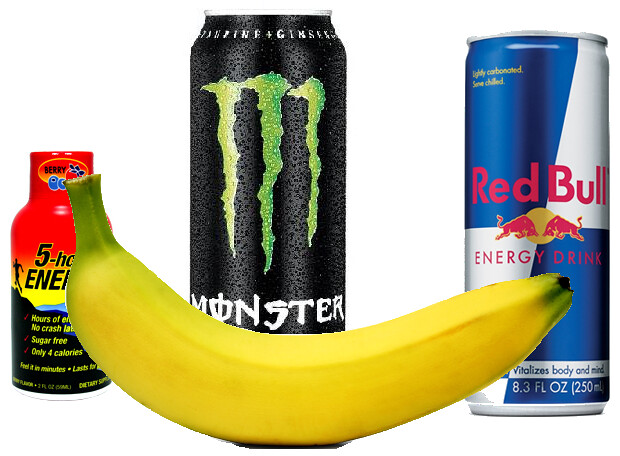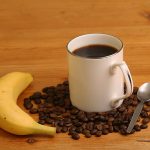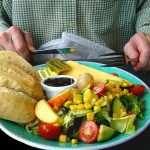Foods To Avoid When Taking Bisoprolol

For most people, taking a new medication may mean switching up your lifestyle a bit and that includes the foods you eat. A food-drug interaction means that a specific nutrient or compound within the food changes the way your body metabolizes the medication, and this can either enhance or reduce the dose your body gets, according to Johns Hopkins Medicine. The potential results: an increased risk of side effects, many of which can be dangerous, or the drug not working as it was intended.
Before introducing a medication, ask your pharmacist about any food interactions, including with alcohol, and any adjustments you may have to make to your diet. In this article, we will discuss bisoprolol and the foods to avoid while taking it.
What is bisoprolol?
Bisoprolol is used alone or in combination with other medications to treat high blood pressure. Bisoprolol is in a class of medications called beta-blockers. It works by relaxing blood vessels and slowing heart rate to improve and decrease blood pressure.
Bisoprolol is used alone or together with other medicines to treat high blood pressure (hypertension). High blood pressure adds to the workload of the heart and arteries. If it continues for a long time, the heart and arteries may not function properly. This can damage the blood vessels of the brain, heart, and kidneys, resulting in a stroke, heart failure, or kidney failure. High blood pressure may also increase the risk of heart attacks. These problems may be less likely to occur if blood pressure is controlled.
Bisoprolol is on the World Health Organization’s List of Essential Medicines. Bisoprolol is available as a generic medication. In 2017, it was the 268th most commonly prescribed medication in the United States, with more than one million prescriptions.
How should bisoprolol be used?
Bisoprolol comes as a tablet to take by mouth. It is usually taken once a day. To help you remember to take bisoprolol, take it around the same time every day. Follow the directions on your prescription label carefully, and ask your doctor or pharmacist to explain any part you do not understand. Take bisoprolol exactly as directed. Do not take more or less of it or take it more often than prescribed by your doctor.
Bisoprolol is typically taken as 2.5–10 mg by mouth once daily. It is possible to take up to 20 mg by mouth once daily if lower doses are not working well enough.
Your doctor will probably start you on a low dose of bisoprolol and gradually increase your dose.
Bisoprolol controls high blood pressure but does not cure it. It may take a few weeks before you feel the full benefit of bisoprolol. Continue to take bisoprolol even if you feel well. Do not stop taking bisoprolol without talking to your doctor. Suddenly stopping bisoprolol may cause angina (chest pain), heart attack, or irregular heartbeat. Your doctor will probably decrease your dose gradually.
What food should I avoid when taking bisoprolol?
There are several foods that should be avoided while taking bisoprolol because they can affect the way the medication works. These foods include:
Potassium Rich Foods: Bisoprolol is a beta-blocker that increases the potassium level in the blood. Potassium levels in cells are very high, and they are kept that way actively by ion pumps in the cell membranes, which push sodium out and potassium in. These pumps are partially blocked by beta-blockers like bisoprolol, so that is one reason your potassium level increases. Taking potassium-rich foods like meat, milk, bananas, and sweet potatoes while taking bisoprolol can result in high blood potassium levels. Dangerously high potassium levels affect the heart and cause a sudden onset of life-threatening problems. Hyperkalemia symptoms include Abdominal (belly) pain and diarrhea.
High sugar foods: Beta-blockers like bisoprolol can potentially increase blood glucose concentrations and antagonize the action of oral hypoglycemic drugs. Avoid sugary food while taking bisoprolol because having too much sugar in the blood for long periods of time can cause serious health problems if it’s not treated. If you are diabetic, inform your doctor before using any antidiabetic medication.
St. John Wort tea: Avoid taking St. John’s wort while taking bisoprolol, it is known to interact with a number of drugs, including beta-blockers, as it induces the hepatic cytochrome P450 system and causes faster drug metabolism.
Alcohol: Alcohol is another beverage you should avoid while taking bisoprolol. Drinking alcohol while you’re taking a beta-blocker can cause your blood pressure to fall. A significant drop can cause you to faint and possibly injure yourself. In addition, alcohol alone can have negative effects on the condition you’re taking a beta-blocker for. Drinking alcohol while taking bisoprolol could increase side effects such as drowsiness and dizziness.
Coffee and energy drinks: Avoid taking coffee and energy drinks containing caffeine because it can decrease the effectiveness of bisoprolol. It is, therefore, better to avoid the intake of caffeine-containing foods and beverages while taking bisoprolol. This includes sodas containing caffeine. According to reports, when tested under laboratory conditions, Pepsi one was found to contain a hefty 57.1mg of caffeine. That compared to just 10.3mg in the least caffeinated branded cola, Ritz Cola, and only 4.9 mg in private brand IGA Cola.





